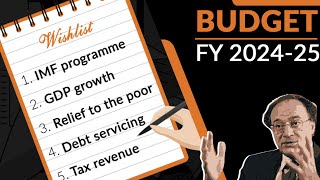Criticality of compatibility of social indicators with economic indicators highlighted
ISLAMABAD: The National Sustainable Development Goals (SDGs) Conference Economic Session on Thursday emphasised inclusive development, enhancing women’s role in labour participation, focusing on the 20 poorest districts, and allocating resources to address poverty.
The SDGs Conference organised by the Ministry of Planning and Development was participated by experts, parliamentarians, stakeholders, civil societies, academia, specialists and UN representatives.
Minister for Planning Development and Special Initiative Ahsan Iqbal said compatibility of social indicators with economic indicators is critical for achieving sustainable development in the country.
The minister said that when sustainable development goals were set, objective was to achieve sustainable development in the country as well as to ensure sustainable development for future generations.
He said the industrial revolution had affected the developing countries and consequently, Pakistan was among the top 10 countries most affected by climate change.
He said that achieving sustainable development goals is Pakistan’s agenda and not the UN’s, therefore, Pakistan has to work for its own development.
The minister said the SDGs were included in Vision 2025 in 2015. “If our social indicators are not compatible with economic indicators, development is not possible,” Ahsan Iqbal said.
He said “today, all the stakeholders who can move this process forward have been brought together and the role of the Parliamentarians have a very important role with regard to sustainable development goals as distribution of resources is done by Parliament.”
Additionally, he said that civil society and the private sector could also play a role in achieving sustainable development goals besides role of the media was also important.
The minister said Pakistan’s neighbour had achieved its goal. He said that by 2047, Pakistan could be included among the best economies in the world, adding “the world bears witness to the intelligence and hard work of the Pakistani nation.”
He said the people of Pakistan had faced the flood of 2022 due to climate change.
Secretary Planning Awais Manzur Sumra acknowledged the national imperative of reporting progress on the SDGs and urged stakeholders to prioritise initiatives fostering sustainable development. He called for a critical re-evaluation of implementation strategies to ensure alignment with the core principles of the SDGs, emphasising the need for multi-stakeholder engagement to accelerate progress towards a sustainable future.
The conference deliberations focused on the environment, economic, and social aspects of sustainable development.
The environment session emphasised the need for effective implementation of environmental policies with clear milestones, sharing data sets on environmental indicators, adopting carbon credit policies to boost exports, and establishing technical and apex committees on environment.
The session also highlighted the importance of smart urbanization, renewable energy, and the inclusion of marginalised communities in policies and plans.
The economic session also emphasized the importance of efficient energy use, protecting labour by ensuring minimum wages, and formalizing informal labour.
The social session focused on the need for inclusive education policies, implementing behaviour change communication strategies for family planning, achieving universal health coverage targets by 2030, and decreasing social and income inequalities for women in agriculture.
The conference reiterated Pakistan’s ownership of the SDGs, emphasising their integration into the national development vision and the need for multi-stakeholder engagement to accelerate progress towards a sustainable future.
Copyright Business Recorder, 2024





















Comments
Comments are closed.